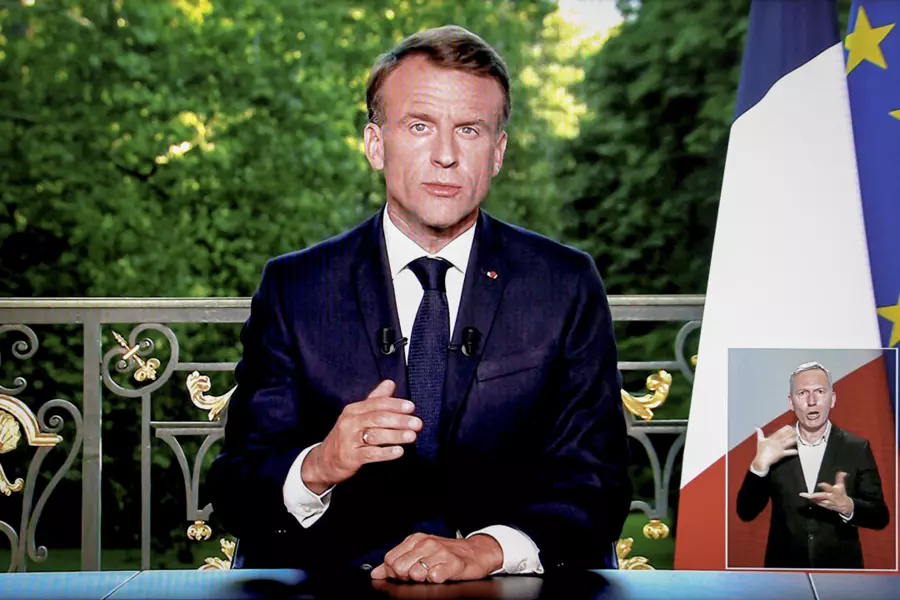French President Emmanuel Macron has made the surprising decision to dissolve the French National Assembly and call for snap elections as the right-wing National Rally party appears poised for a landslide victory in European Union parliamentary elections. The move represents a gamble for Mr. Macron, who is currently serving his second term as president and cannot seek reelection in 2027 due to term limits. Should the National Rally Party gain enough seats in the new election, it would effectively derail Mr. Macron’s legislative agenda for his remaining two years in office.
In a video addressing the French people, President Macron announced the decision, stating, “I have decided to give you back the choice of our parliamentary future through the vote. I am thus dissolving the National Assembly this evening.” He set the first round of elections for June 30 and the second round for July 7.
The National Rally Party, led by Marine Le Pen—Mr. Macron’s two-time presidential rival—looks to be on track for a stunning victory over Mr. Macron’s Renaissance Party in the European Parliament. This result could give the populist party significant influence over French legislation and policy-making during Mr. Macron’s remaining time as president.
Ms. Le Pen, who has long represented a populist voice of growing French discontent with the nation’s immigration policies, expressed her enthusiasm for the election results, calling it “historic.” Despite being defeated by Mr. Macron in both the 2017 and 2022 French presidential elections, Ms. Le Pen’s party has made steady gains, and is now on track to snatch legislative power from the French president.
We are ready to take over power if the French give us their trust in the upcoming national elections,” she said during a rally after the results came in.
Before the National Assembly was dissolved, Mr. Macron’s party held 169 seats to Ms. Le Pen’s 88. The lower chamber has a total of 577 seats. It is unclear how the election results will impact this distribution.
In other parts of Europe, right-wing and populist parties also enjoyed victories in recent elections. In Germany, the Alternative for Germany Party came in second with around 15.6 percent of the vote, still falling far behind the center-right alliance party, which came in first with around 30.3 percent of the vote.
In Italy, the populist Fratelli d’Italia Party came in first place with 28.6 percent of the vote. The center-left party came in a close second with 25.6 percent of the vote. In Hungary, the right-wing Fidesz–KDNP Party Alliance came in first place with nearly 44.3 percent of the vote.
In Spain too, conservatives won, gaining nine seats and stripping one seat away from the runner-up socialist party.
Despite these victories for the right, however, the center-right European People’s Party—the party of European Commission President Ursula von der Leyen—will still hold the most seats in the European Parliament, with a projected 181 out of 720 total seats. Centrist parties will now work in the coming weeks to form a coalition that can secure at least 361 seats to govern effectively.

